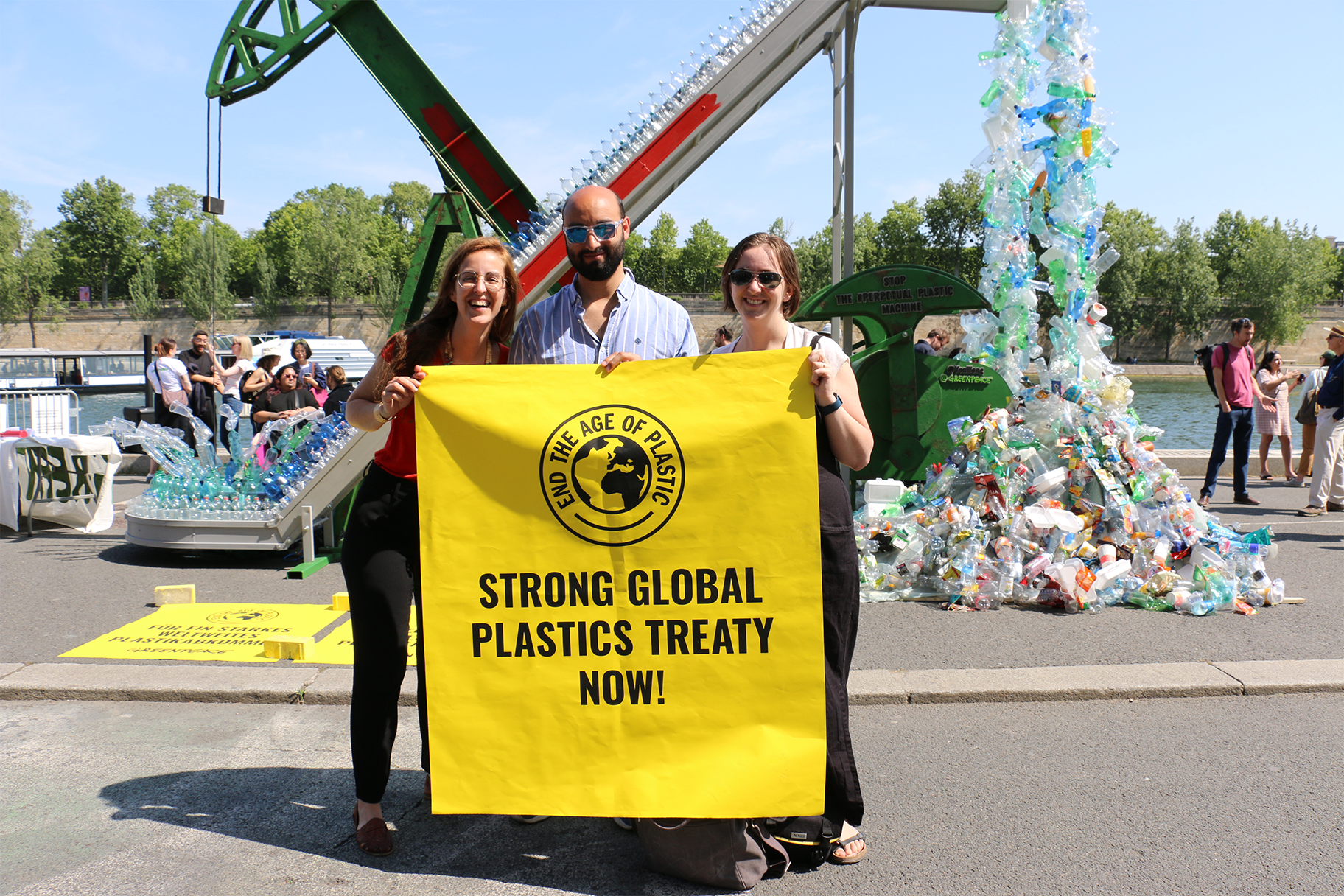Global problems demand global solutions
When CIEL and partners began advocating for a global plastics treaty in 2016, many thought it was ambitious — too ambitious, even impossible.
In 2022, the UN adopted a mandate to negotiate a global plastics treaty “to end plastic pollution.” This achievement reflects the tremendous work by CIEL and Break Free From Plastic movement partners to broaden our understanding of the plastics crisis from marine litter to the entire polluting footprint of plastic production, use, and disposal.

The timeline for these negotiations is ambitious, and so are our goals for country advocacy and the treaty’s outcomes. The plan is to finalize the entire agreement by the end of 2024, with signature and adoption in 2025. CIEL participated in the first two negotiating sessions this year in Uruguay and France, where we engaged with country delegates, provided innovative policy research and technical and legal analysis, ensured effective participation for civil society, and coordinated a powerful cross-constituency coalition to counter-balance the influence of industry.
One early fight was ensuring the negotiation process is transparent, participatory, and inclusive. The second fight was defending against a few countries seeking to reopen an earlier decision to demand full consensus decision making, which would effectively give any single country veto power. Drawing on CIEL’s extensive experience in other international negotiating fora, we supported negotiators in not succumbing to this pitfall. Nevertheless, some countries aiming to protect business-as-usual continue to try to derail the negotiation with procedural strategies.

The zero draft of the treaty, which serves as the starting point of negotiations, has been recently released. Now, CIEL is working relentlessly to ensure the treaty is legally binding, so countries can’t opt out. Our goal is to secure a treaty with global targets for reducing plastic pollution, global standards for phasing out toxins from plastic products, and a mechanism for financial remedy and support. If we succeed, the treaty will fundamentally change how we produce, use, and dispose of plastics and enable a just transition to a non-toxic circular economy regionally, nationally, and locally.
